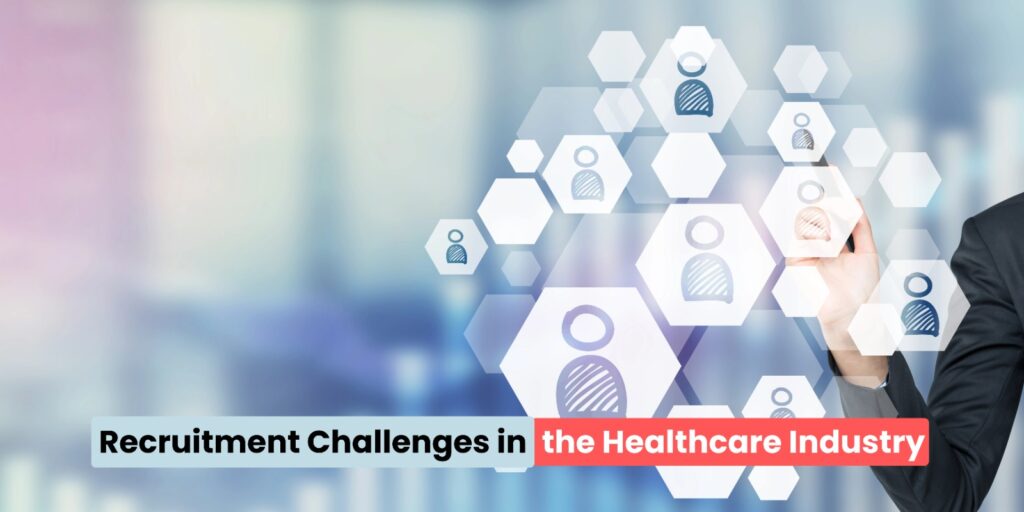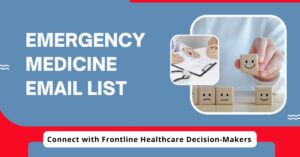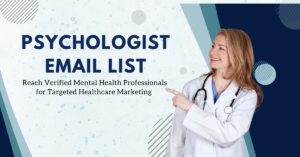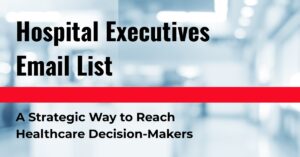The healthcare industry is a cornerstone of societal well-being, yet it faces significant hurdles in attracting and retaining skilled professionals. Recruitment challenges in the healthcare industry have intensified in recent years, driven by a combination of workforce shortages, evolving expectations, and increasing demand for specialized skills. For B2B businesses involved in healthcare staffing or talent management, addressing these challenges is critical to maintaining operational efficiency and ensuring quality care delivery.
The Growing Demand for Healthcare Professionals
The global demand for healthcare services is rising due to factors such as an aging population, advances in medical technologies, and the increasing prevalence of chronic diseases. However, this growth in demand has not been matched by a proportional increase in the healthcare workforce. This mismatch creates a significant gap, leaving many organizations struggling to fill key roles.
Key Functionalities:
- Aging Population: As the population ages, the need for healthcare services—particularly long-term care—is increasing exponentially. This adds pressure on organizations to recruit skilled professionals quickly.
- Specialization Requirements: Modern medicine’s complexity necessitates highly specialized roles, making recruitment efforts more targeted and competitive.
Top Recruitment Challenges in the Healthcare Industry
Healthcare recruitment involves unique complexities that set it apart from other industries. Below are the primary obstacles organizations face:
- Workforce Shortages
The shortage of qualified healthcare professionals is perhaps the most pressing challenge. Factors contributing to this include limited training programs, high attrition rates, and an aging workforce. Many professionals are nearing retirement, and there are insufficient new entrants to replace them. - Retention Difficulties
Retention is a major concern for healthcare providers. High-stress environments, burnout, and better opportunities elsewhere lead to frequent turnover. This issue is particularly acute in roles requiring extensive patient interaction, such as nursing. - Intense Competition for Talent
Hospitals, clinics, and other healthcare providers often compete for the same pool of candidates. This competition drives up salaries and benefits packages, making it harder for smaller organizations to keep pace. - Compliance and Credentialing
Hiring in healthcare is subject to stringent compliance and credentialing requirements. These processes can be time-consuming and complex, delaying the onboarding of new hires. - Geographical Disparities
Rural and underserved areas face additional challenges in attracting healthcare professionals. The lack of resources and amenities makes these regions less appealing to candidates.
Strategies to Overcome Recruitment Challenges
- Leveraging Data-Driven Recruitment
Using advanced analytics and healthcare databases can streamline the recruitment process. By identifying trends and predicting future workforce needs, organizations can make more informed hiring decisions. - Enhancing Employer Branding
A strong employer brand can make organizations more attractive to prospective candidates. Highlighting work-life balance, growth opportunities, and positive workplace culture can help differentiate an organization. - Flexible Work Arrangements
Offering flexible schedules, remote work options for administrative roles, and part-time opportunities can attract a broader range of candidates. - Expanding Training and Development
Investing in training programs and partnerships with educational institutions can help address the skills gap. Organizations can also consider upskilling existing employees to fill specialized roles. - Partnering with Staffing Agencies
Collaborating with specialized healthcare recruitment firms can accelerate the hiring process. These agencies have access to extensive talent pools and expertise in navigating compliance requirements. - Focus on Retention Initiatives
Retention strategies, such as offering competitive compensation, mental health support, and recognition programs, can help reduce turnover and build a more stable workforce. - Utilizing Reliable Healthcare Databases
Accessing professional healthcare databases from Medstream Data provides accurate and up-to-date candidate information. These trusted sources enable organizations to identify qualified professionals more efficiently, streamline the hiring process, and enhance recruitment outcomes.
The Role of Technology in Healthcare Recruitment
Technology is transforming how healthcare organizations approach recruitment. Tools such as artificial intelligence (AI) and automation can streamline various aspects of the hiring process, making it more efficient and effective.
Technological Innovations:
- Applicant Tracking Systems (ATS): Automates job postings, resume screenings, and interview scheduling.
- AI-Driven Candidate Matching: Uses algorithms to identify the best candidates based on specific job requirements.
- Virtual Interviews and Assessments: Enables remote hiring, making it easier to connect with candidates in different locations.
- Data Analytics: Provides insights into recruitment trends and workforce needs, helping organizations plan strategically.
The Next Era of Healthcare Recruitment
As the healthcare industry continues to evolve, recruitment strategies must adapt to keep pace. Emerging trends include:
- Focus on Diversity and Inclusion
Organizations are prioritizing diversity and inclusion in their hiring practices to foster innovation and better represent the communities they serve. - Global Talent Acquisition
Expanding recruitment efforts internationally can help address local workforce shortages, though this comes with its own set of challenges, including visa and credentialing requirements. - Employee Wellness Programs
To combat burnout and enhance retention, many organizations are investing in employee wellness initiatives, including mental health support and stress management programs. - Collaborative Hiring Models
Some organizations are adopting collaborative hiring approaches, partnering with academic institutions and community organizations to build robust talent pipelines.
Conclusion
Recruitment challenges in the healthcare industry are a complex and multifaceted issue that requires innovative solutions and strategic planning. By understanding these challenges and leveraging advanced tools and strategies, B2B businesses can position themselves as indispensable partners in the quest to build a resilient and skilled healthcare workforce. Whether through data-driven recruitment, technology integration, or enhanced retention initiatives, the opportunities to make a meaningful impact are immense.
Visit our website Med Stream Data for more healthcare industry related information!







